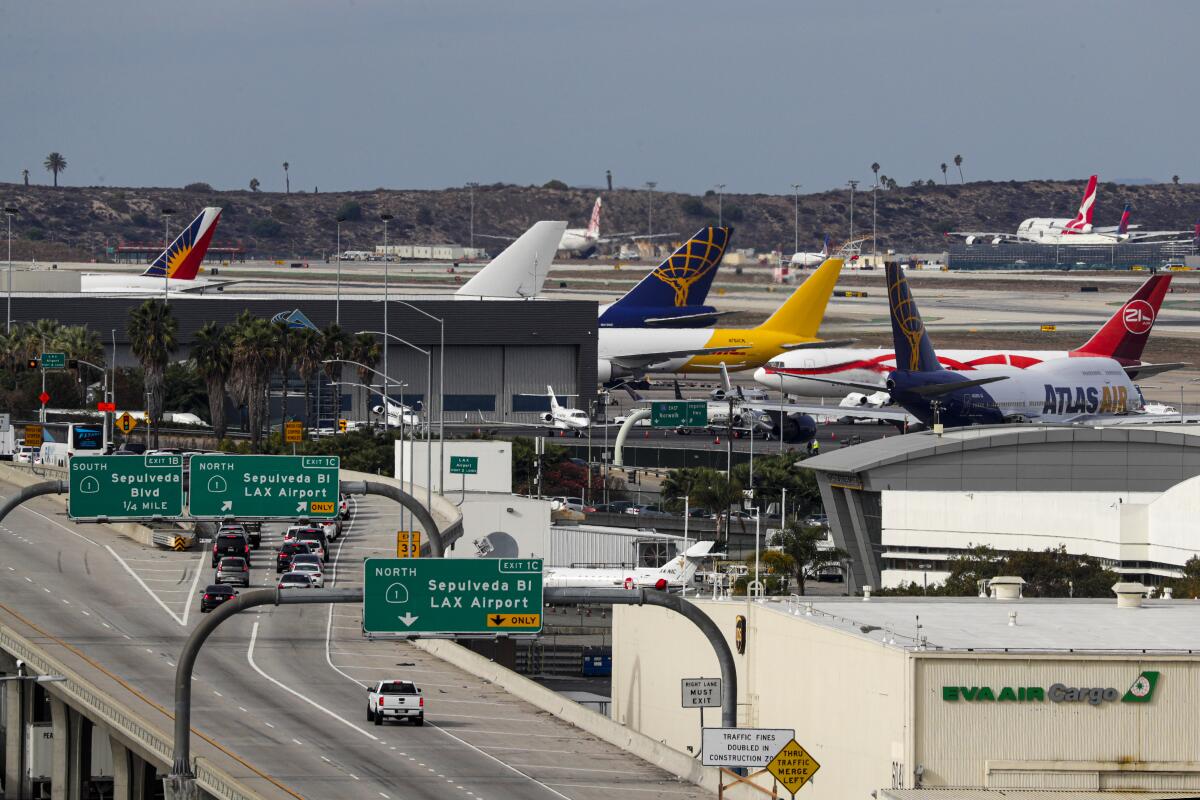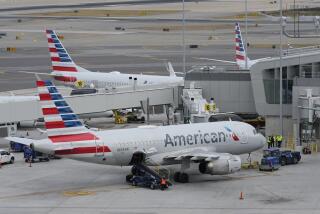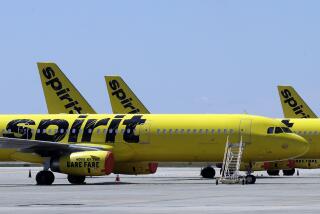Critics say airlines’ proposed rule on unfair practices would make regulation harder

Consumer advocates are complaining that a regulation proposed by the U.S. Department of Transportation — at the airline industry’s urging — would make it harder to penalize airlines for bad behavior and to adopt new rules that protect travelers.
The rule would require the Transportation Department to apply a new standard when considering civil penalties or new regulations on air carriers: whether the actions in question meet a specific definition of “unfair and deceptive practices.” The new policy would also allow airlines to request hearings before new regulations are imposed.
In documents describing the proposed rule, the Transportation Department acknowledged that it “could translate into the department performing fewer enforcement and rule-making actions” against airlines and could “lengthen the time needed to complete the actions.”
The proposed rule, announced last week, grew out of President Trump’s 2017 executive order to “alleviate unnecessary regulatory burdens” by asking federal agencies to propose regulations that needed to be repealed, replaced or modified. In response to the Trump order, a trade group for the nation’s airlines urged the federal agency to adopt the proposed policy.
Consumer advocates complain that the rule was requested by the airline industry to benefit itself at a time when passengers are crammed into tighter airline seats and forced to pay a growing menu of fees for services and extras that were once included in the price of an airfare.
“By all appearances, this seems to benefit the airline industry,” said John Breyault, a vice president for the National Consumers League.
Charles Leocha, president and co-founder of Travelers United, a nonprofit travelers advocacy group, said the policy would mean that the Transportation Department would “do less for consumers and more of the bidding of the airlines.”
Airlines for America, the trade group that proposed the rule, praised the department for filing the proposed changes, saying in a statement that they “will provide greater transparency” and “deliver tremendous benefits” to airlines and air passengers.
When asked what problems the new rule would address, Airlines for America spokesman Carter Yang said the policy would align the Transportation Department’s authority over airlines more closely with the regulatory power of the Federal Trade Commission, an independent federal agency that enforces antitrust laws and investigates consumer complaints.
But in documents that explain the proposed changes, the Transportation Department said Airlines for America asked for the new rule after saying the agency has “pursued enforcement action in cases involving minor infractions, inadvertent errors or isolated incidents with little evidence of a ‘practice’ or a significant consumer harm.”
Under the Obama administration, the agency adopted several consumer protection regulations over the last decade that led to hefty fines against the nation’s airlines.
In 2009, the agency required airlines to provide access to bathrooms, food and water on domestic flights that are delayed at least two hours. After three hours, passengers must be offered a chance to disembark, according to the rule.
Airlines that fail to comply could be fined as much as $27,500 a passenger. American Eagle Airlines, a regional carrier for American Airlines, was fined $900,000 in 2011 for stranding more than 600 passengers at least three hours on more than a dozen flights.
In 2011, the agency mandated that airlines and travel agencies include in the total price of the airline ticket the non-optional fees and taxes, including fuel charges and the Sept. 11 Security Fee. Later that year, the Transportation Departmentlevied a civil penalty of $120,000 against Continental and announced a $45,000 fine against US Airways Group Inc. for a similar violation.
Under the proposal, when the Transportation Department wants to levy a civil fine against an airline or travel company or adopt a new regulation, the agency must explain whether the questioned business practice fits the definition of “unfair” or “deceptive.”
The rule would define a practice as “unfair” if it “causes or is likely to cause substantial injury, which is not reasonably avoidable, and the harm is not outweighed by benefits to consumers or competition.” The rule would define “deceptive” as “likely to mislead a consumer acting reasonably under the circumstances with respect to a material issue.”
Also under the proposed rule, airlines and other interested parties could request a formal hearing before the Transportation Department adopts a new consumer protection rule. After the hearing, the agency can move ahead with the rule, modify it or eliminate it.
Breyault and Leocha said the proposed rule creates new bureaucratic hurdles for the Transportation Department to regulate airlines and travel companies.
“This is just creating a whole new basis for lawsuits, questioning the Department of Transportation’s judgment,” Breyault said.
The agency will consider adopting the proposed rule after accepting public comments for 60 days.







